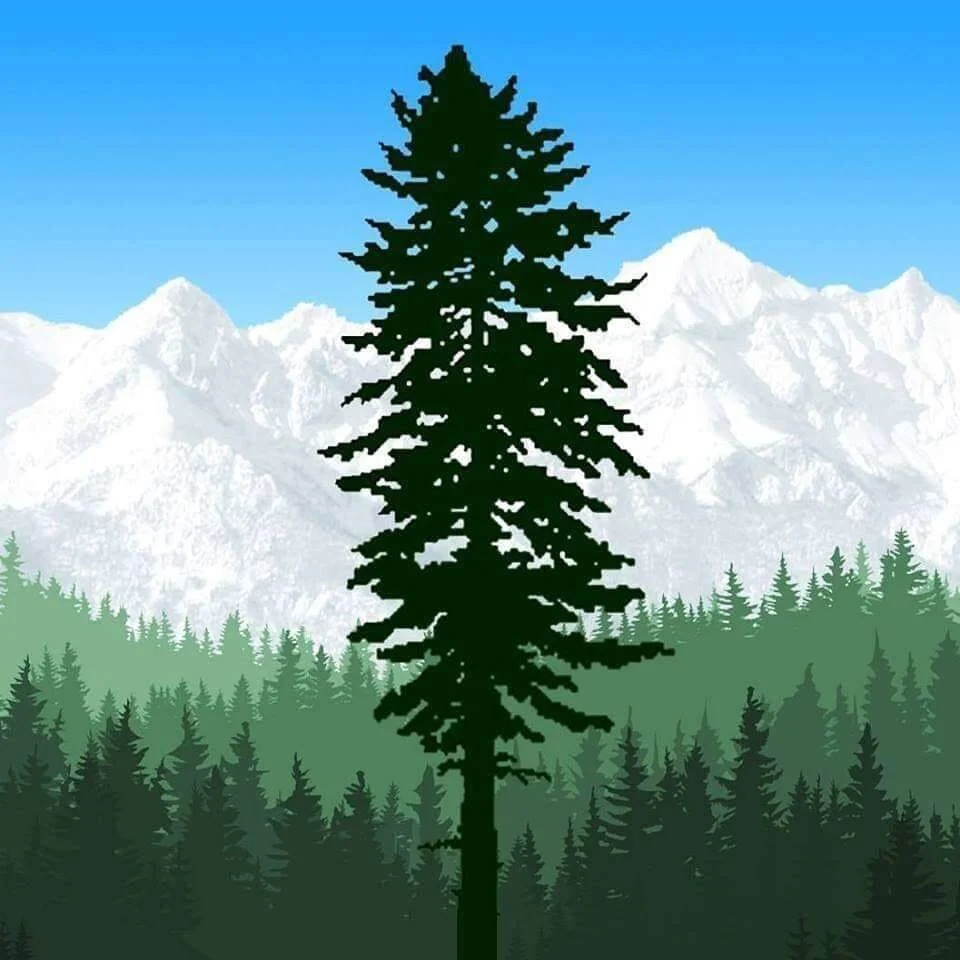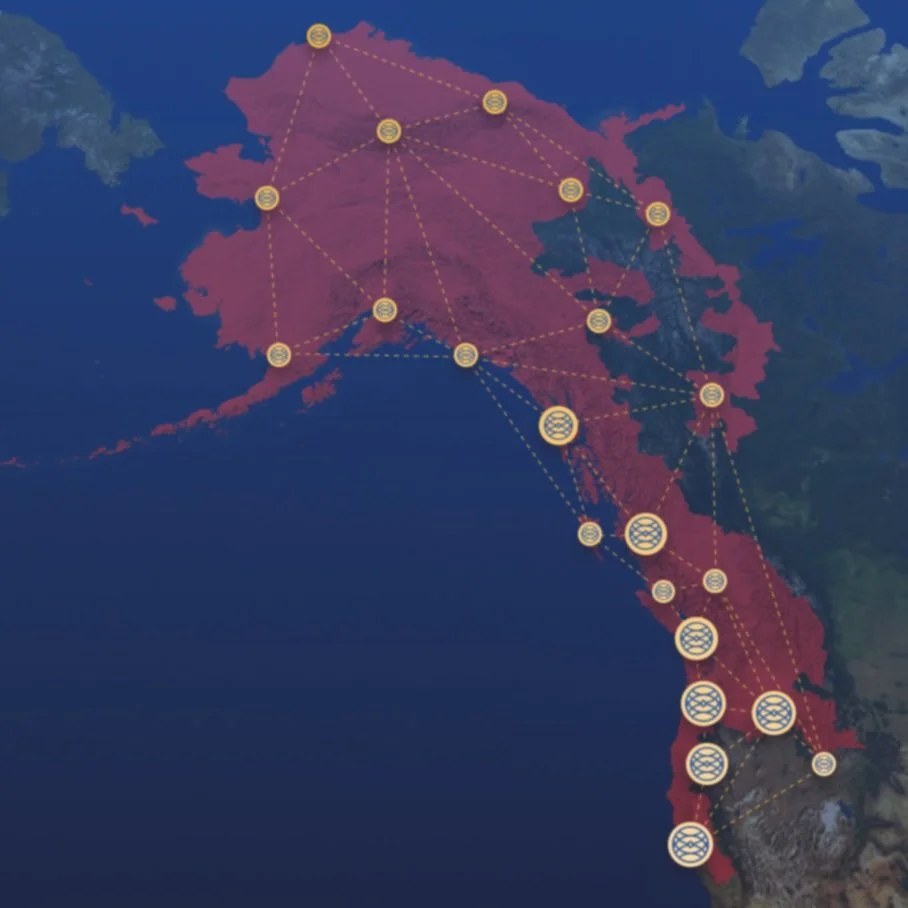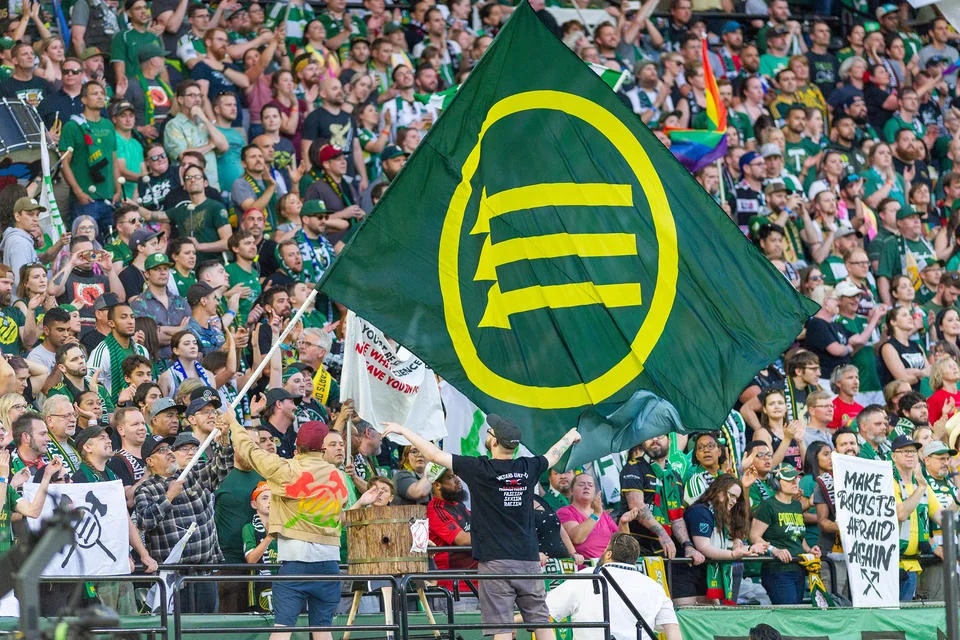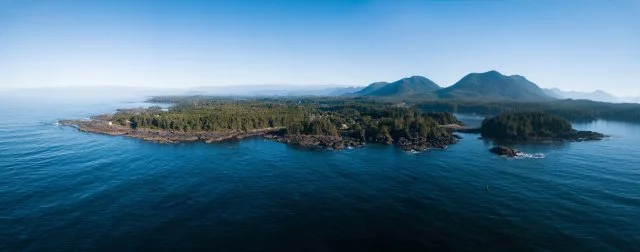HIYU
[hi-YU'] or [hy-IU'] — adjective, noun.
Meaning: many; much; lots of; greatly; heap; plenty; plentiful; plural; enough (to go around), abundance
Origin: From Nootka Jargon hayú 'many, much' < Nuu-chah-nulth hayu ‘ten’ or ‘aya ‘to be lots’; Makah Nootkan khayu ‘ten’; Toquaht, aiya
Used with reference to quantity and numbers rather than size or degree, the term hiyu is used to describe "many", "several" or "lots of" something, as in "mika tumtum hiyu snass okoke sun?" (do you think it will rain much today?) or "hiyu tshish okoke sun" (it is very cold today)
This can apply directly to objects that “iskum hiyu” (accumulate), as in “kah hiyu stick mitlite” (forest), “kah hiyu apple stick mitlite” (orchard), “hiyu sogahs” (army), “hiyu sheep” (flock of sheep) or “hiyu moosmoos” (herd). Also, though the word “town” was used in Chinook Wawa, it was not uncommon to hear of anything from a village to a city described as “hiyu house”.
The word ‘hiyu’ can extend to concepts such as “kloshe kopa hiyu tillikums” (popular) or “halo klahowyum; mitlite hiyu iktas pe dolla” (rich), the later of which would be someone with "hiyu iktas" (many things; many goods).
It can also be applied to people, like the “man yaka hiyu cooley” (traveler) and the “ yaka kumtuks hiyu Lalang” (linguist), two people you would expect to be “kumtuks hiyu” (learned).
It can express an intensity of soemthing, like a “hiyu wind” (windstorm) and “hiyu snass” (rainstorm), or describe the outpouring of an emotion, like “hiyu kloshe wawa” (cheer) or “hiyu cly” (wail).
It can be used to turn a noun into an adjective, as seen with “hiyu noise” (noisy), “hiyu snass” (rainy), “hiyu stone mitlite” (rocky), “hiyu smoke” (smoky), and “hiyu wind” (windy).
It can be used to describe things that are “elip hiyu” (more; additional; excess), that “chako elip hiyu” (exceed) beyond the “dip hiyu” (majority), up to the “elip hiyu kopa konaway” (maximum; most).
At a convention or party, one would expect a "hiyu tillikum" (crowd; throng; many people, a big party), and likely experience "hiyu wawa" (much talk; talkative; clamor; argument).
Even if one was “hiyu chee” (entirely new) they would reasonably expect there to be “hiyu muckamuck” (plenty of food; feast), or at least "kopet hiyu" (enough; plenty) for all of the "hiyu tillikums kopa house" (audience; many people in house). Hopefuly the cook did not “hiyu mamook” (exert) themselves do much while cutting a stake, otherwise they might “hiyu mamook cut” (mangle) the meat.
While ‘hiyu’ emphasized the abundance of something, as in “hiyu times” (frequently; often) or “hiyu chuck” (flood), it can also be modified with other worlds to show lesser degree. This can bee seen in "tenas hyiu" (a little, some, several, a few) and “tenas hiyu times” (sometimes), “hiyu mesachie mitlite” (unclean), and the expression “wake hiyu” has a wide range of meanings, including ‘few’, insufficient’, ‘lack’, ‘not many’, ‘not very much’, ‘rare’, ‘scant’, ‘scanty’, ‘scarce’, ‘seldom’, and ‘very few’.
While less common nowadays, ‘hiyu’ is still heard in some places to refer to a big party or gathering of people, as in Lillooet's one-time annual "The Big Hiyu" (also known as "The July"), a week-long joint celebration of Dominion Day and the Glorious Fourth in the Fraser Canyon town of Lillooet, featuring horse races, gambling, a rodeo and other festivities.



























